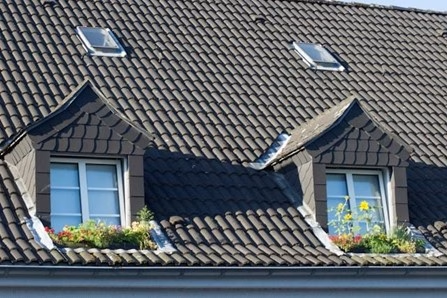Asphalt shingles safeguard countless residences throughout America, though numerous property owners commit serious selection errors resulting in early deterioration and costly replacements.
The distinction between a 15-year covering and a 30-year covering frequently depends on five essential choices made during the original buying process. Comprehending these vital aspects will spare you thousands in subsequent repairs while guaranteeing your property remains shielded across decades of severe weather.
Assess Warranty Coverage and Manufacturer Reputation
Warranty details provide significant insight into a manufacturer’s product confidence. Typical coverage spans 20-30 years for standard options, while premium materials may include 50-year or lifetime protection. Nevertheless, examine the terms thoroughly. Numerous warranties feature prorated structures where benefits diminish over time. Seek non-prorated coverage that sustains complete protection throughout the initial time frame.
Investigate the company’s history of fulfilling warranty obligations and its financial health. Coverage holds value only when the business remains operational to support it. Well-established producers of asphalt shingles with extensive industry experience generally deliver more dependable products and customer support. Consult local installers about their encounters with various brands concerning material performance and warranty resolution procedures.
Examine Granule Quality and Coverage
Granules are the primary barrier against ultraviolet radiation, environmental elements, and physical damage. Superior shingles incorporate ceramic-treated granules that prevent algae development and preserve color stability throughout their lifespan. Copper-enhanced granules provide exceptional algae protection, especially beneficial in moisture-rich environments where dark streaking frequently appears.
Examine the uniformity of granule coverage across each shingle. Exposed areas or sparse application signals production flaws that will cause early deterioration. High-grade shingles frequently contain specialized granules that deflect heat, decreasing attic temperatures and reducing energy expenses. Certain producers provide impact-resistant granules that help minimize damage from hailstones and flying debris.
Factor in Installation Requirements and Compatibility
Experienced roofing professionals recognize that each shingle variety comes with distinct installation specifications. High-end shingles demand particular nailing patterns, specialized starter courses, or dedicated ventilation configurations to preserve manufacturer warranties. Dimensional shingles typically require extended fasteners to accommodate their greater depth, while specialized products may call for custom installation methods.
Verify that your selected asphalt shingles align with your roof’s pitch, airflow requirements, and current flashing systems. Roofs with minimal slopes need different shingle products than those with steeper angles. Factor in the accessibility of coordinating elements such as ridge tiles, hip pieces, and initial courses. Combining incompatible materials can nullify warranties and undermine system effectiveness.
Consider Your Climate and Weather Conditions
Your local climate patterns should guide your shingle choice. Areas experiencing strong winds need materials with minimum wind resistance ratings of 110 mph. Hurricane-vulnerable locations demand higher specifications, typically 130 mph or above. Regions with dramatic temperature swings require shingles with excellent thermal stability to avoid cracking and deformation.
Cold environments benefit from products engineered to withstand ice dam conditions, while hot, sun-exposed areas need UV-protective materials featuring reflective granules to slow deterioration and cut cooling expenses.
Heavy snowfall zones require shingles with robust adhesive bonding that remains effective under load and freeze-thaw patterns. Consider impact resistance classifications if your location encounters regular hailstorms. Class 4 impact-rated shingles can endure larger hail and frequently earn insurance premium reductions.
Endnote
Homeowners who prioritize these five factors typically enjoy 40-50% longer roof lifespans than those who choose based on price alone. Research each element thoroughly, get multiple contractor opinions, and remember that your roof represents one of your home’s most critical systems. A well-chosen shingle system will protect your investment, reduce maintenance headaches, and provide peace of mind through whatever weather comes your way.
